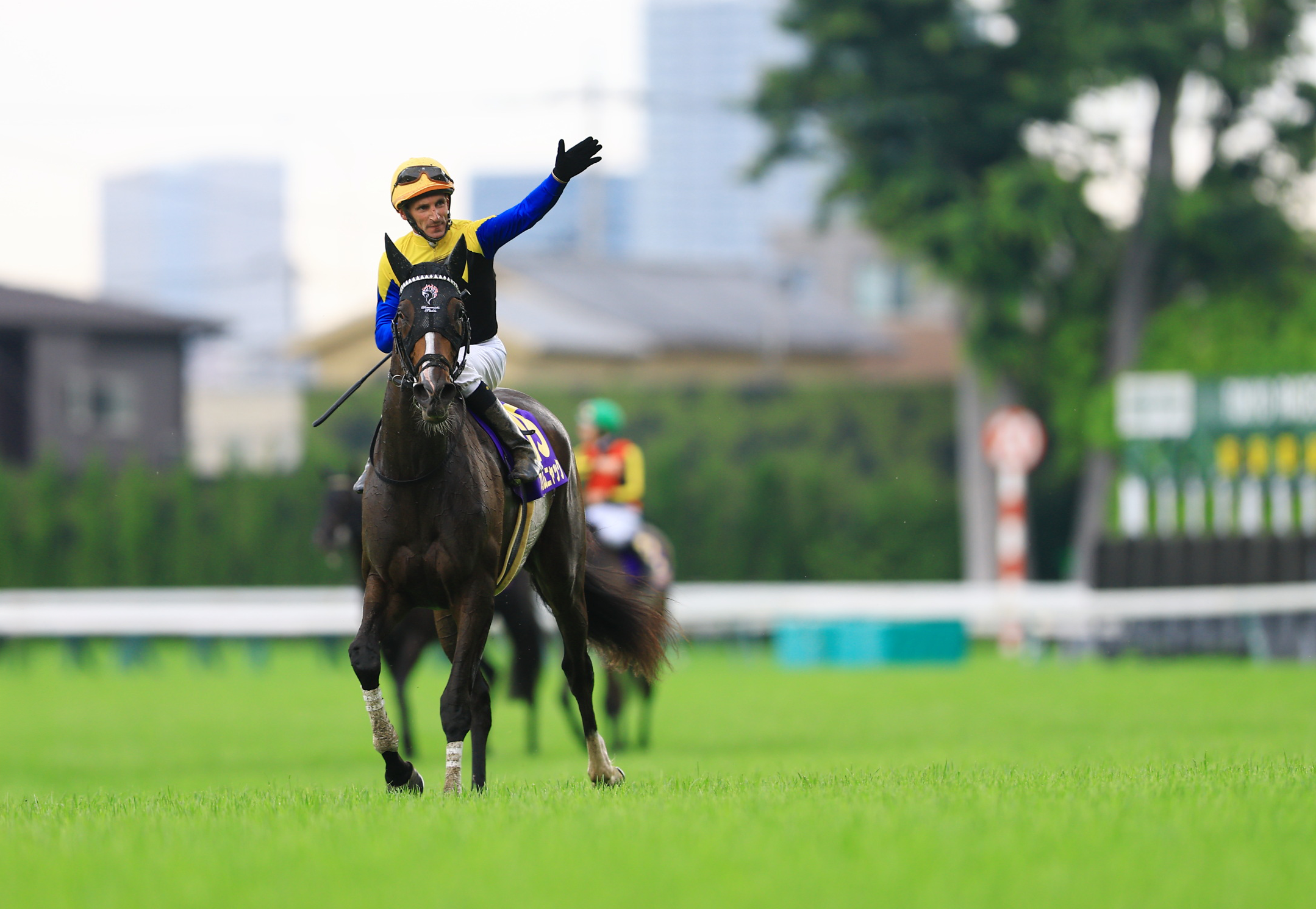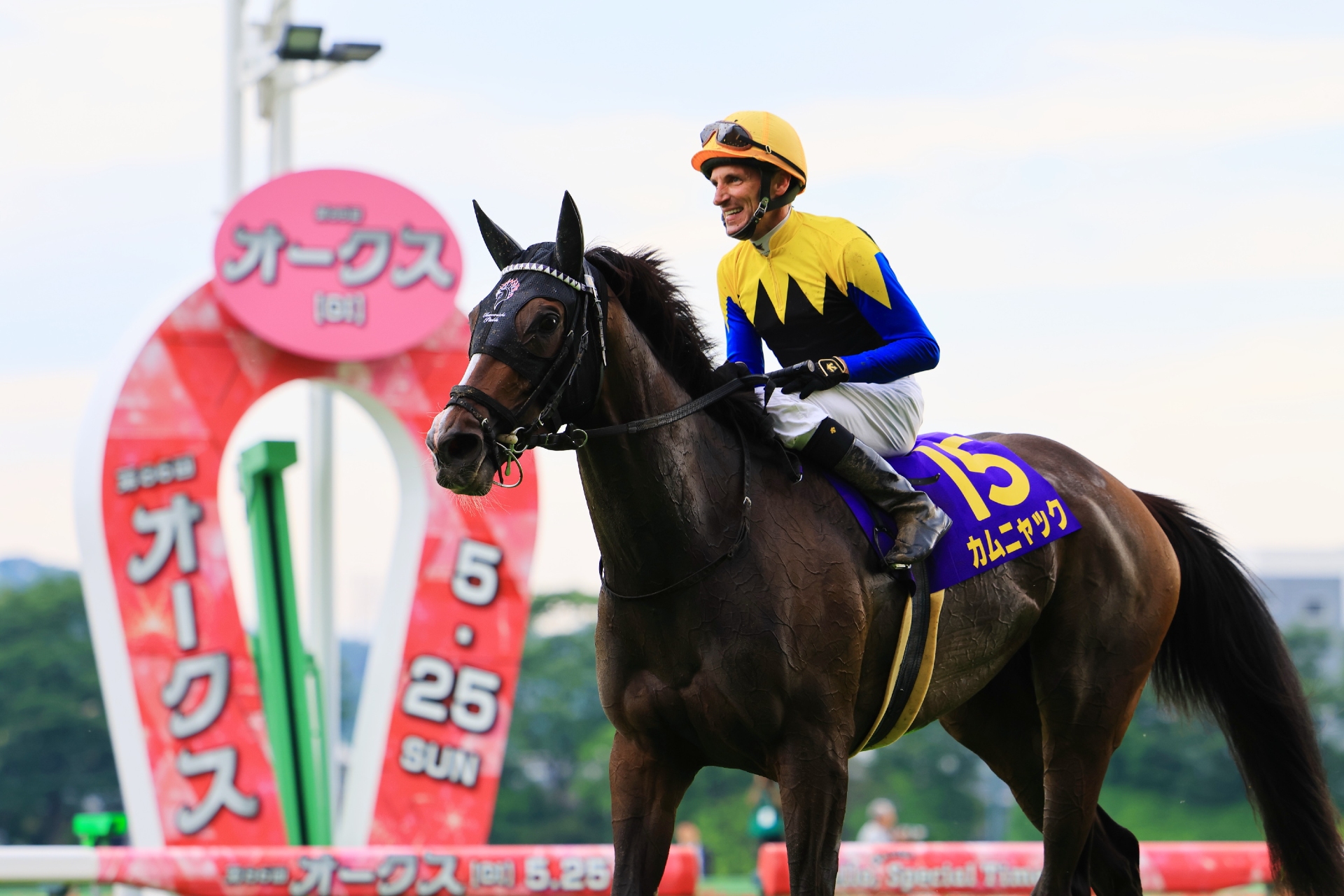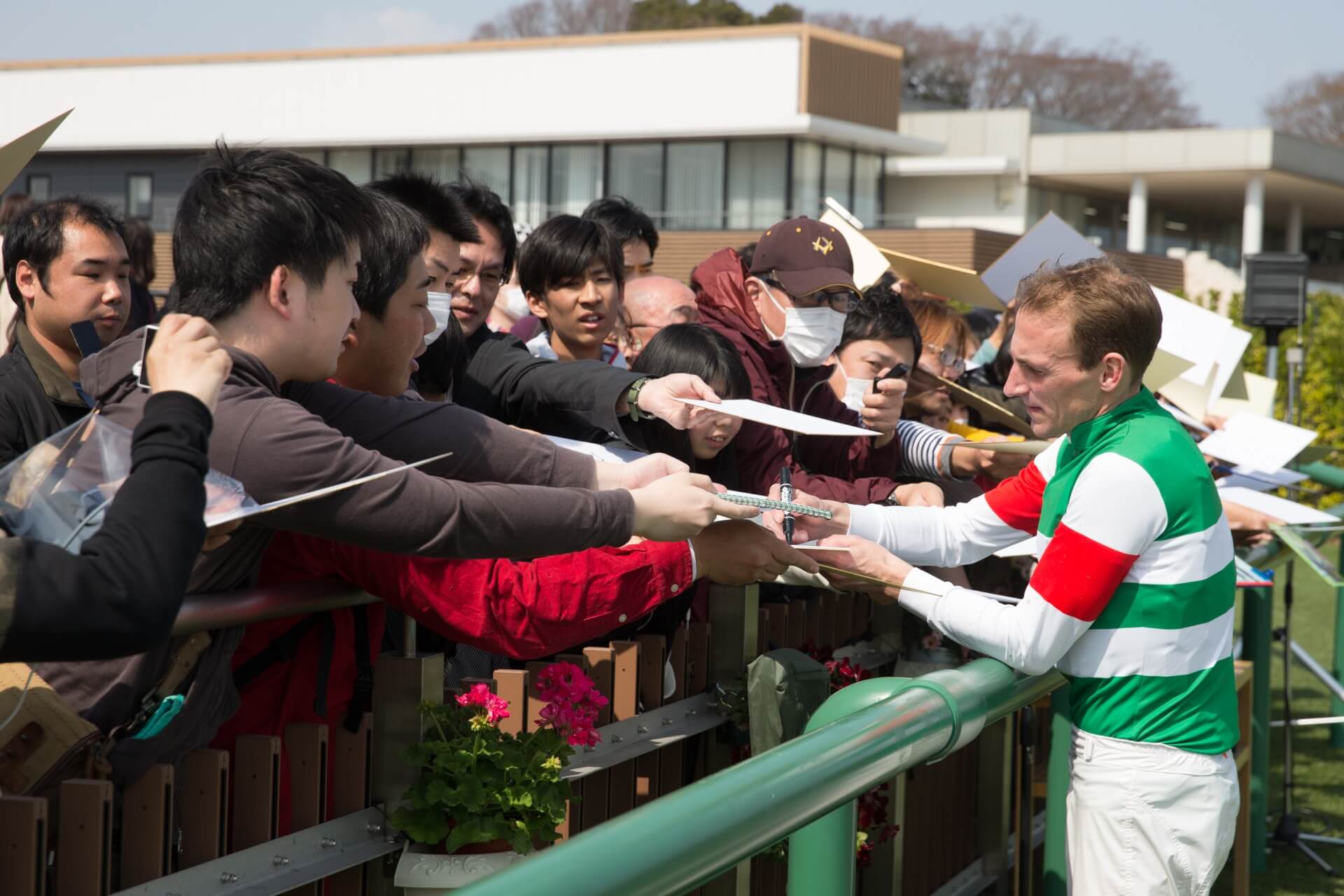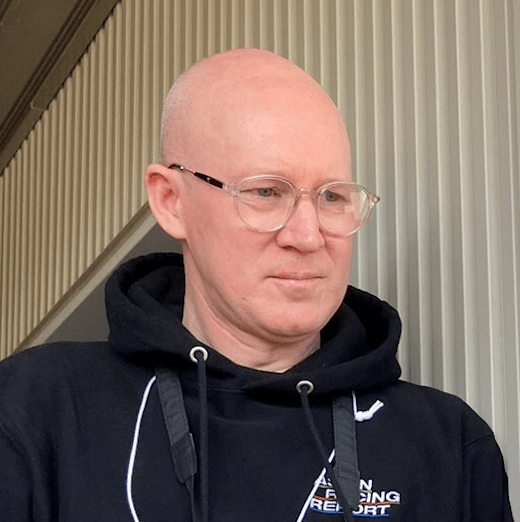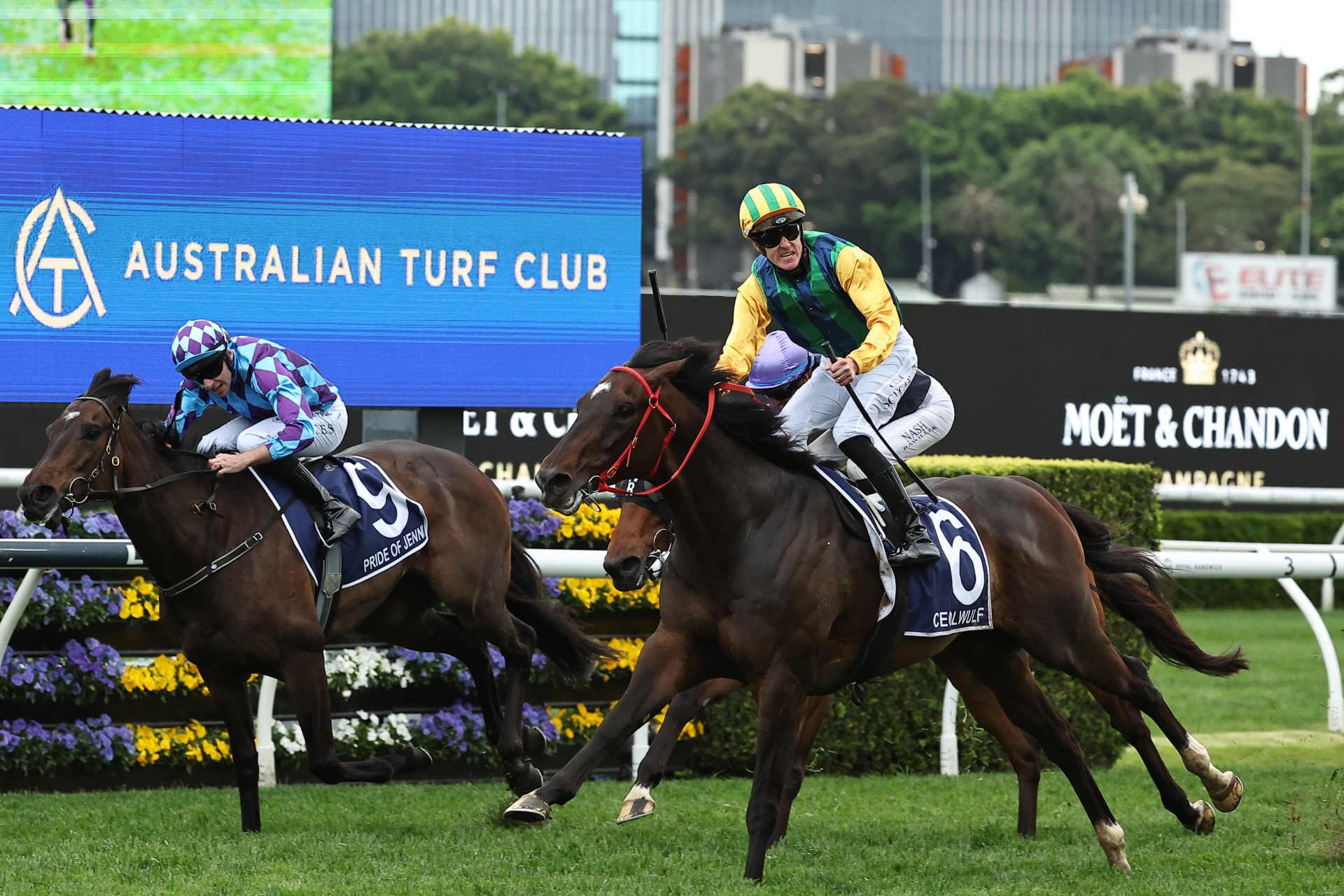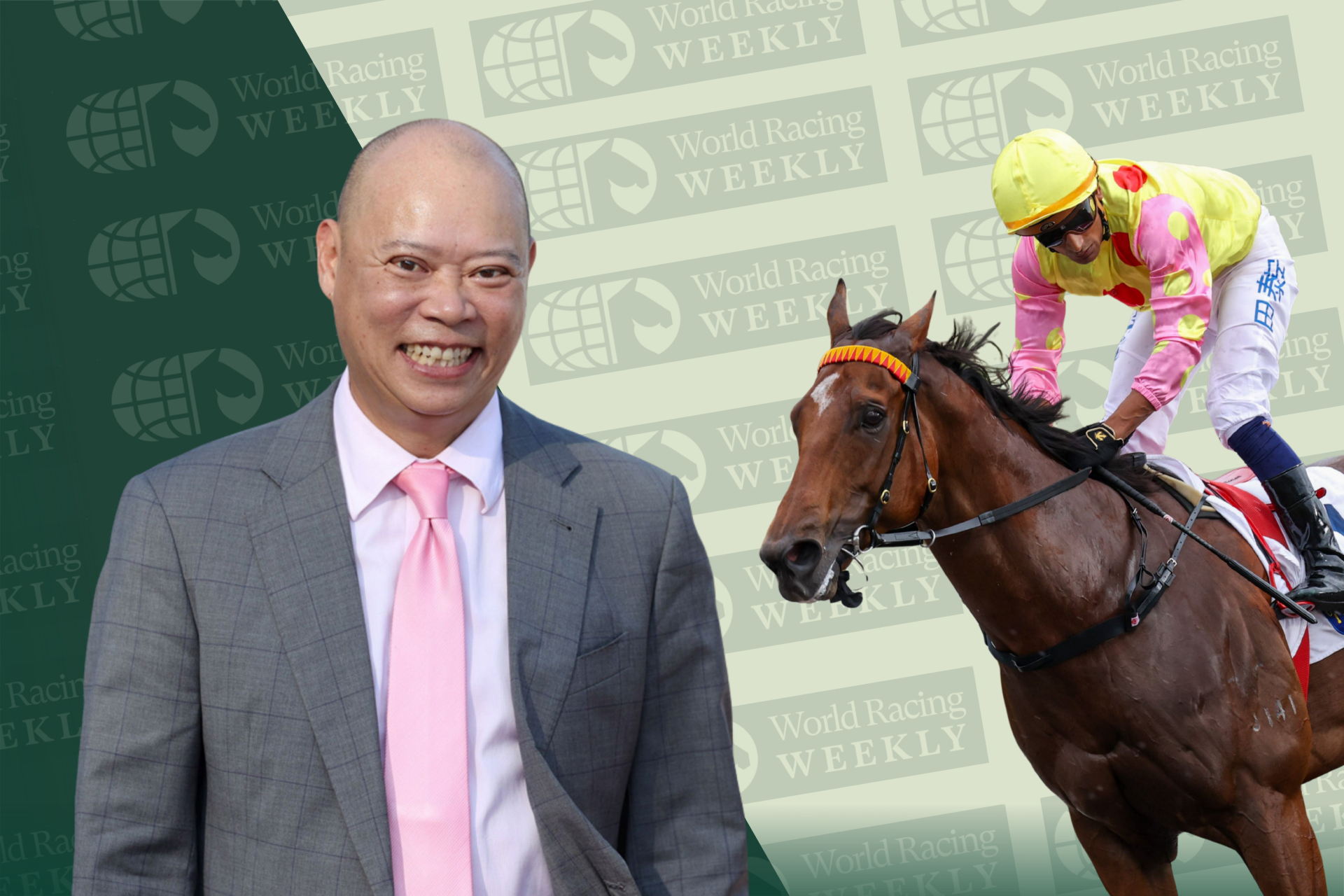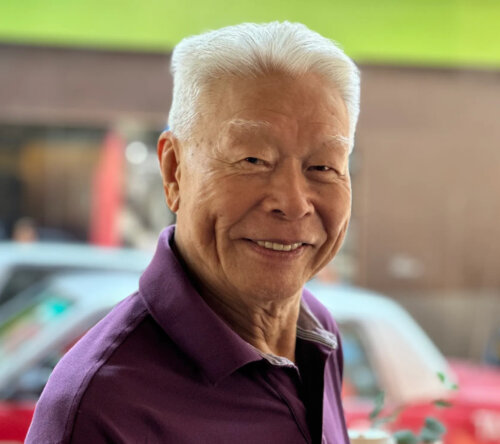Andrasch Starke was sweating off body weight in the Baden-Baden sauna. It was September 1, 2002, the afternoon of the G1 Grosser Preis Von Baden and alongside him in the steam room was Frankie Dettori. Starke was to ride the G1 German Oaks heroine Salve Regina; Dettori, at the peak of his Godolphin-era powers, was booked for Marienbard, a horse in process of being converted from long distance stayer to mile-and-a-half machine.
“My horse had only 53 or 54kg and Marienbard had 60kg,” Starke tells Idol Horse. “I said to Frankie, ‘My filly is unbelievable, she’s so tough and strong: Listen, I’ll win today.’ Frankie looked at me and he said, ‘Sorry Andrasch, I have to disappoint you: Marienbard, he’s this explosion, he will win the Prix de l’Arc de Triomphe.’
“I said, ‘How can you say that? If you have a horse to win the Prix de l’Arc de Triomphe, why are you coming to Baden-Baden?’ He said again, ‘He will win the Prix de l’Arc de Triomphe.’ And he was right.
“He beat me nearly three lengths that day at Baden-Baden,” he continues. “It was incredible. You have the best filly for maybe the last 10 years in Germany, and they bring Marienbard to Baden-Baden and you get beat. Frankie told me Marienbard was nothing special before but then he had found this explosion. He said, ‘Andrasch, you can’t beat me.’ He was convinced with that horse.”
That experience among many others in Starke’s storied career means he has a good idea about the difficulty of the next big task in front of him. He takes aim at the Preis der Diana, the German Oaks, knowing that he must face a talented raider from not only Godolphin but also Coolmore.
The Irish powerhouse, that of the dark blue silks, is targeting the Dusseldorf classic with its G2 Ribblesdale Stakes heroine Garden Of Eden, trained by Aiden O’Brien; the Maktoum family’s global operation – the royal blue hue once synonymous with Dettori – has supplemented the Charlie Appleby-trained two-time Listed scorer Spirited Style. Starke rides one of the local contenders, Santagada.
“To be honest, it’s a very tough race this year,” Germany’s champion jockey says and admits that, given the respect he has for the overseas rivals this time around, “if my filly can finish in the place-money, that’s fine.”
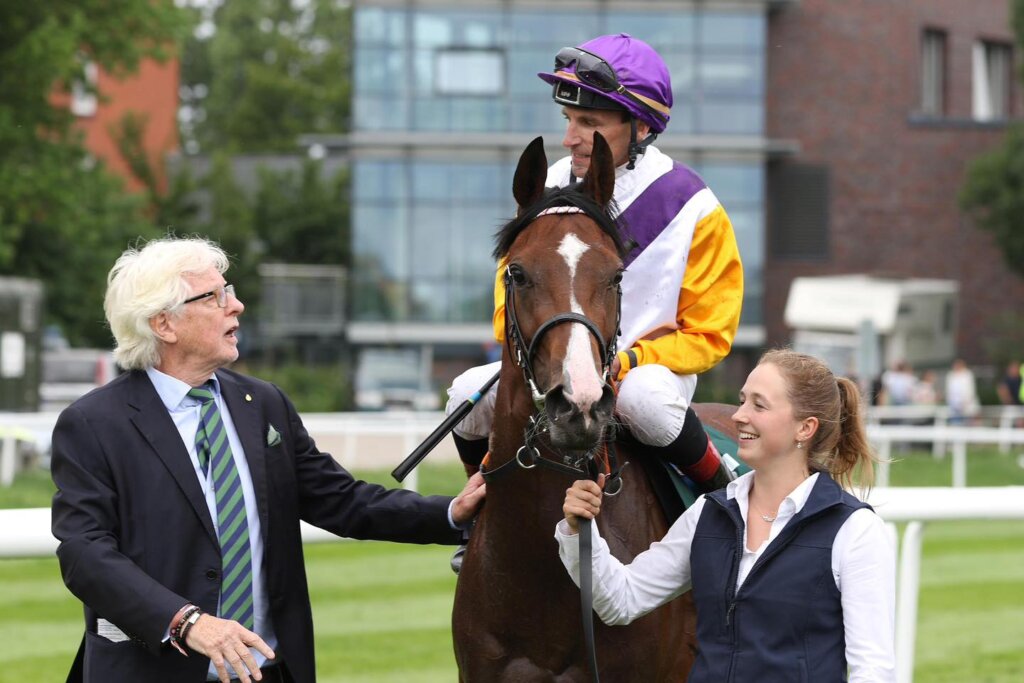
He is not down on raiders arriving to contest and win Germany’s top races, quite the contrary: he understands the importance of high-class horses coming in to bolster the quality of competition and maintain race ratings in a country that has a small racehorse population, but a proud tradition of punching above its weight in producing top-class runners.
“We need good horses to come from overseas to race in our G1 level,” he says. “I like that, I like that challenge, it’s important for us. My target and the target for all our horse industry in Germany is to keep the quality up.”
But Starke, 51, is not resigning himself to defeat in the Oaks either. A more recent experience in Japan reminds him that the unexpected can occur. It was at Tokyo in May that the man who has won both of Europe’s top all-age races, the G1 Prix de l’Arc de Triomphe and the G1 King George VI & Queen Elizabeth Stakes on the great mare Danedream, as well as a G1 Singapore International Cup with Epalo, had one of his greatest moments on a racecourse.
That came in another Oaks, the G1 Yushun Himba, on the Yasuo Tomomichi-trained Kamunyak, a filly that just a month or more earlier had been without a rider due to her headstrong manner. Starke had first ridden in Japan in 1997: Kamunyak’s success was his first Group 1 win there.
“I was very lucky to get that horse and you need a little bit of luck,” he says. “Before I got there, people were saying you need to get a G1 and I said, ‘I know but I didn’t get it in the last six or seven years so I won’t get the horse now.’”
But along came Tomomichi, asking him to ride the filly at trackwork one morning. Kamunyak had been ridden by Yuga Kawada in her first three races for an impressive debut win and two defeats.
“She became complicated, she was very difficult, too keen, and no one wanted to ride her,” Starke says. “She went off with me the first work: I said that we had to change something, get two out in front of her and I would ride her behind a couple. So that worked a little bit, but I know why the jockey changed horses because she was very high-tempered and very difficult to ride. The second time at trackwork she was much better and then I won the G2 Flora Stakes and then the Oaks.
Starke thought he had won the Oaks “by a safe head” – which was the official margin – but “it seemed more like a nose.” He recalls that after the line Mirai Iwata shouted across to him “You won” and Christophe Lemaire said “You haven’t seen the result yet,” as jockeys pulling up their mounts were shaking his hand.
“I thought I won, but then when I came back, I thought maybe before I look to the sky I should check the result, but it was ok,” he says.
“There couldn’t be a better place to win a G1: compared to the King George, which was amazing, and the Prix de l’Arc de Triomphe, pretty much the G1 in Japan, with all the crowds out there, more than 100,000 people, that was amazing, unbelievable, so that touched me; with all the interviews and all that it was maybe one of the biggest races I’ve ever known.”
With that ‘bucket list’ win in the bag, his focus shifts to getting the best out of Santagada, a filly he rides for trainer Peter Schiergen. In another unexpected turn of events, he has the pick of the Schiergen runners this year and he has chosen Santagada as his Preis der Diana mount ahead of stablemate Nicoreni.
“Nicoreni has done nothing wrong, she has had an incredible season as well. I won with her and the way she fought back … both fillies are tough,” he says.
Santagada is not only in Starke’s opinion “one of the best horses in Germany” but she also happens to be of classic-winning stock: a great granddaughter of Salve Regina, no less, who was herself a sister to the Derby winners Samum and Schiaparelli, out of the great broodmare Sacarina.
“She is a very small filly and Dusseldorf is a very tricky track with an uphill and that can be more of a problem at the 2200-metre distance,” he says, noting that Santagada has not yet raced beyond a mile. “She’s not full of stamina, but because she has a big heart, I don’t worry about the distance. She’s done nothing wrong, she won three group races already and I’m very happy with her.”
Starke also recalls the latest of his six Preis der Diana wins, on Lacazar in 2017. That year, Godolphin sent across Wuheida, already a Group 1 winner and stepping in off second place in the G1 Falmouth Stakes. She was only third as 11/10 favourite.
“This year it’s more competitive even than when Lacazar beat the Godolphin filly,” he says. “Now I will be very glad if we get placed … and when Aiden O’Brien sends a horse, she is going to be very tough to beat.
“If I was riding Salve Regina or Danedream,” Starke adds, “I don’t care if they’re coming, they’d have to beat me but this time it’s difficult for the German horses.”
Starke has partnered some of German racing’s very best horses in his long career, some in partnership with Schiergen. Jockey and trainer had a long association that gained a global profile through Danedream but they parted ways more than four years ago. Yet in this year of unforeseen, fortuitous twists for Starke, circumstances brought them back together when Schiergen’s number one jockey Bauryzhan Murzabayev suffered a serious injury.
“At that time when that accident happened with Murzabayev, I was just on holiday and the owners and Peter Schiergen called me; I’d been away four years, two years with Henk Grewe and two years with Markus Klug,” he says.
“They said if you are able to ride a season with us and would like to, because in the past we had a good relationship, can you relight that? I said, ‘Of course, I’ll do that.’ We had a good relationship, so successful, and sometimes in sport you go away and come back, and you’re more successful and more respectful, so I was happy.”
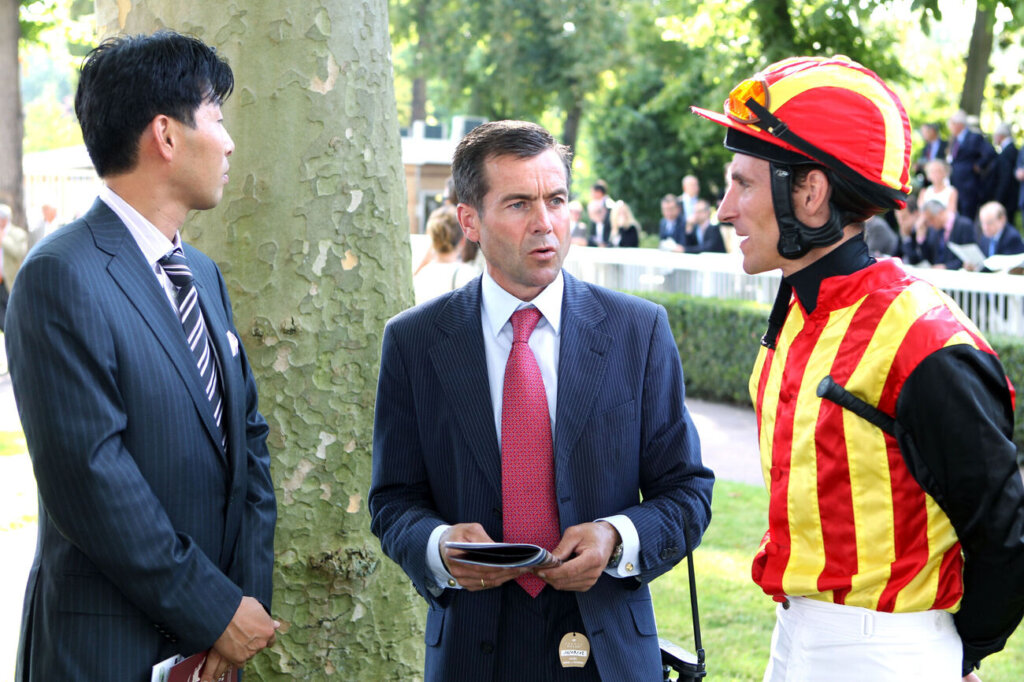
He says it is “super cool” to be back with Schiergen and that there was no bad feeling when they split.
“We were together for about 14 years and in this industry that’s a long period,” he relates. “One day we had nothing to say, we had a big respect for each other but we had to take our paths going our own ways. That happens in sports business, especially in horse racing. It was like we had to do something different, it wasn’t about jockey style or training style, but we were at the point that we said, ‘Let’s go away.’
“He changed jockey, I went to a new trainer and we were both successful. He took Murzabayev and I had success with Henk Grewe. I won the Derby again; I won in America and races in Japan as well.”
Starke has no contract with Schiergen: it’s a handshake agreement to ride for the stable until November. The expectation is that once Murzabayev is recovered, the Kazakh will return to the number one role.
“Next year hasn’t been spoken about,” he says. “It looks like for me, 51 years, maybe it’s time to take care of my girlfriend and family, spending more time with them. I love horse racing, I like riding but I can be a freelancer, to take time with my family and enjoy it a little bit.”
There is a chance that he could return to Japan, perhaps, but he recognises that the likelihood is that his finest day in Tokyo will be one of his last days riding there.
“Japan was always a pleasure but I know that’s probably over, there’s a possibility I could go for one month in February, “ he says. “Everything is fine, now it’s time to take time for private relationships. That doesn’t mean it’s over, but I don’t have to take all the season.
“If you get the right offers from the right people,” he adds, “you can take that and enjoy life.”
The unexpected calls from Tomomichi and Schiergen are evidence of that. ∎

